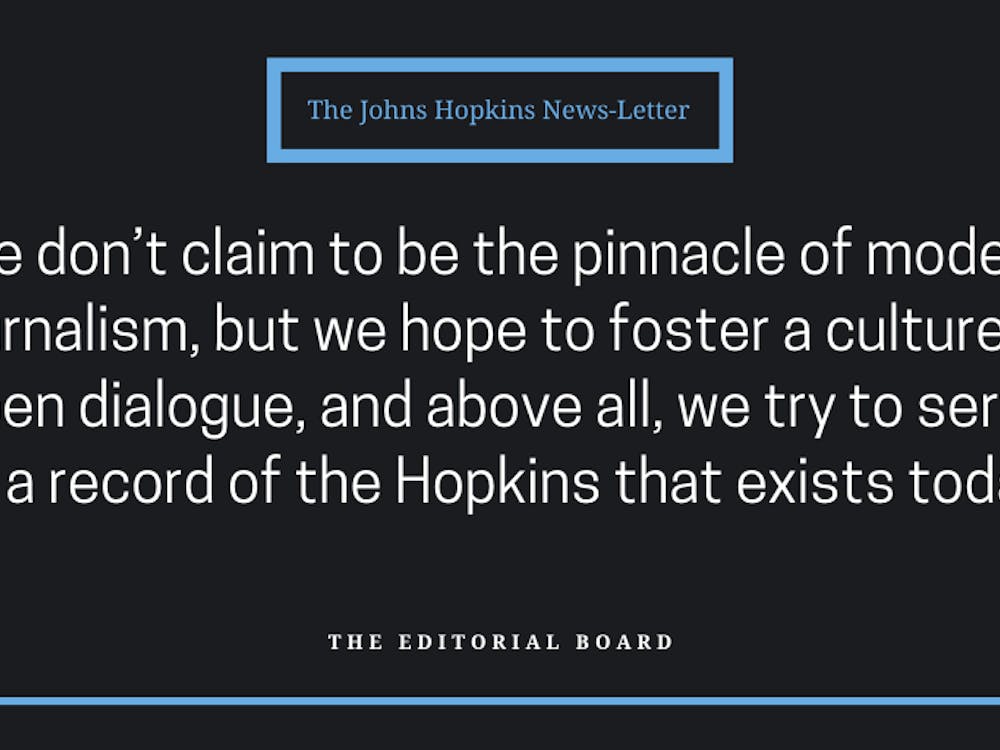This past Sunday I took a break from working on my problem set at the library to attend the Spring Fair Beer Garden for the last time before I graduate. Unfortunately, as it stands currently, this could be the last time the Beer Garden appears at Spring Fair. The administration sees the Beer Garden as a sore point in its policy to tackle binge drinking on campus. To remedy this, the administration may decide to remove the Beer Garden from future Spring Fairs. This line of thinking is flawed. Removing the Beer Garden will do nothing to address binge drinking on campus. Meanwhile, doing so destroys an integral part of Spring Fair, resulting in significant harm to the Hopkins undergraduate experience.
Spring Fair resonates with and improves the Hopkins experience because it is one of the few events at Hopkins that is sweepingly inclusive. For much of the year our social experiences as undergraduates are guided by the groups we are a part of; clubs, majors, Greek life, sports teams, etc. But for three days a year we are reminded that above all, we are all part of Johns Hopkins. We remember that we are part of the community that surrounds this institution. Even more, the openness of Spring Fair to greater Baltimore is a reminder that our community at Hopkins, that small bubble we call Homewood, has a part to play in the larger community.
When Spring Fair was begun in 1972, the founders designed the fair with the goal of creating a sense of out-of-the-ordinary inclusiveness. It is foolish to deny that drinking is a part of the culture of being young and in college. As such, drinking had been a part of the fair since its inception. By the late 1970s, Spring Fair had begun to become overly rowdy and out of control. To deal with the situation, rather than ban alcohol at Spring Fair, the University started the Beer Garden in 1981. This was a smart measure to retain the inclusiveness of Spring Fair while maintaining a controlled environment for the consumption of alcohol. In many regards, the Beer Garden was designed to reduce the ill effects of binge drinking. Since the start of the Beer Garden in 1981, it has been a major contributor to the success of the Spring Fair mission. Each year the Beer Garden brings together students from across campus and social groups to interact in a manner that does not usually take place at Hopkins.
Even greater, the Beer Garden has been critical in introducing Hopkins students to the type of artistic and cultural offerings that have come to define Baltimore as having a vibrant scene. This was an aspect that truthfully I often ignored. As I made my way over to the Beer Garden on Sunday, I considered it fortunate that for the first time all weekend that the weather was sunny and warm. But really, it was not the weather or the beer that became the highlight of the day for me. Sometime after I got there I began hearing a really interesting musical set. When I looked up on the stage I saw a man with a thick beard seemingly flailing at a modified banjo with a drumstick. It only became more perplexing when he switched to playing his banjo with a violin bow. That man was Mike Savino, the sole performer in his fledgling one-man group Tall Tall Trees.
Mike had traveled to Baltimore that day to share his unique brand of experimental and psychedelic banjo music with us. When I went up to meet him after the show, he was surrounded by a crowd of Hopkins students looking to learn a little bit about him and his music. I can confidently say that most of the students who went up to meet him after the set did not come to the Beer Garden that day to hear indie musicians. But nevertheless, each of us left a little bit more inspired and a little bit more cultured.
The Beer Garden works to improve Hopkins because at its face value, it does not set out with a mission. I cannot pretend that most students come to the Beer Garden with a greater intention than to just grab a few drinks with friends. But that is why it is successful. It is not downtown, run by a fraternity or driven with a specific goal in mind. It delivers the inclusiveness intended in Spring Fair because it does not feel forced. Instead the inclusiveness of the Hopkins community is created at the Beer Garden when students walk around and run into an old acquaintance or an alumnus coming back to visit for Spring Fair. The Beer Garden has come to help define Spring Fair and the Hopkins experience. It is more than cold beer, live music and good conversation. It is a chance for us to meet the Mike Savinos we have introduced to our community. It is for this reason that I urge the school administration to preserve a part of Hopkins that helps make the Hopkins experience better.















Please note All comments are eligible for publication in The News-Letter.